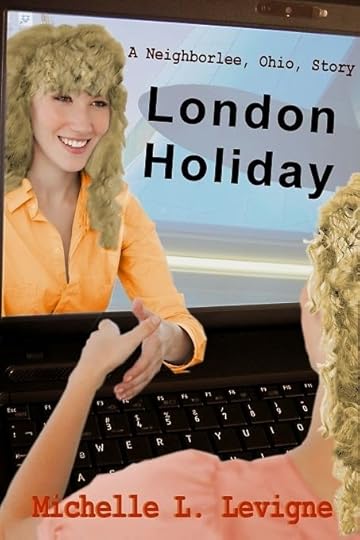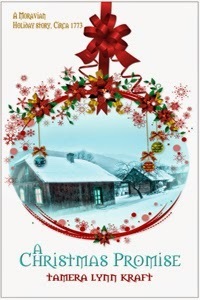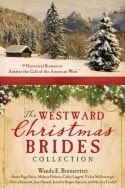Michelle L. Levigne's Blog, page 159
October 20, 2014
Today! PARANORMAL BLOCK PARTY on Facebook
 Come chat with me and other fantasy and spooky and paranormal authors about upcoming books Today, MONDAY, October 20, at the PARANORMAL BLOCK PARTY, sponsored by Author Island, on Facebook. Just type PARANORMAL BLOCK PARTY in the search field. Easy enough?
Come chat with me and other fantasy and spooky and paranormal authors about upcoming books Today, MONDAY, October 20, at the PARANORMAL BLOCK PARTY, sponsored by Author Island, on Facebook. Just type PARANORMAL BLOCK PARTY in the search field. Easy enough?Authors of all sorts of fantasy and spooky types of books will be chatting starting 8am, EST, a new author every hour.
My time slot will be noon EST. I'll be talking about my November 15 release from Uncial Press, LONDON HOLIDAY, set in my weird little town of Neighborlee, Ohio. The "weirdness capital of the United States -- possibly the world." I'll be posting excerpts from the book and offering some hints at upcoming novels in the series.
What do you get when you combine a computer programming assignment, an odd video camera, an interdimensional invader and the magic of Divine's Emporium? Get a hint who -- or what -- London Holiday is. And maybe get a chance to win your own "baby werewolf."
I'll also be discussing other books set in Neighborlee, along with other fantasy novels. PLEASE don't make me face that time slot all alone!
Published on October 20, 2014 01:00
October 18, 2014
Spotlight Saturday: WITH MUSIC IN THEIR HEART, Carole Brown
 Today's Spotlight is on fellow ACFW Ohio member and friend, Carole Brown, with her new novel: With Music in Their Heart
Today's Spotlight is on fellow ACFW Ohio member and friend, Carole Brown, with her new novel: With Music in Their Heart Angry at being rejected for military service, Minister Tyrell Walker accepts the call to serve as a civilian spy within his own country. Across the river from Cincinnati, Ohio, a spy working for a foreign country is stealing secret plans for newly developed ammunition to be used in the war. According to his FBI cousin, this spy favors pink stationery, giving strong indications that a woman is involved.
He’s instructed to obtain a room in the Rayner Boarding House run by the lovely, spunky red-haired Emma Jaine Rayner. Sparks of jealousy and love fly between them immediately even as they battle suspicions that one or the other is not on the up and up.

While Tyrell searches for the murdering spy who reaches even into the boarding home, Emma Jaine struggles with an annoying renter, a worried father (who could be involved in this spy thing), and two younger sisters who are very different but just as strong willed as she is.
As Tyrell works to keep his double life a secret and locate the traitor, he refuses to believe that Emma Jaine could be involved even when he sees a red-haired woman in the arms of another man. Could the handsome and svelte banker who’s also determined to win Emma Jaine’s hand for marriage, be the dangerous man he’s looking for? Is the trouble-making renter who hassles Emma Jaine serving as a flunky? Worse, is Papa Rayner so worried about his finances and keeping his girls in the style they’re used to, that he’ll stoop to espionage?
Will their love survive the danger and personal issues that arise to hinder the path of true love?
With Music in Their Heart releases November 2014! Look for it on Amazon.
Brown not only has her award winning (Selah finalist; Genesis semi-finalist) debut novel, The Redemption of Caralynne Hayman, available for purchase now, but a companion book called West Virginia Scrapbook: From the Life of Caralynne Hayman, filled with tidbits of information about West Virginia, quotes, recipes from West Virginia and from Caralynne’s life, pictures and discussion questions for the novel.
November, 2013, the first book in her mystery series, Hog Insane, released. It’s a fun, lighthearted novel introducing the characters, Denton and Alex Davies.
 Releasing November, 2014, is the first book in a new romantic suspense series: With Music In Their Hearts. Three red-headed sisters. Three spies. Three stories.
Releasing November, 2014, is the first book in a new romantic suspense series: With Music In Their Hearts. Three red-headed sisters. Three spies. Three stories.Besides being a member and active participant of many writing groups, Carole Brown enjoys mentoring beginning writers. She loves to weave suspense and tough topics into her books, along with a touch of romance and whimsy, and is always on the lookout for outstanding titles and catchy ideas. She and her husband reside in SE Ohio but have ministered and counseled nationally and internationally. Together, they enjoy their grandsons, traveling, gardening, good food, the simple life, and did she mention their grandsons?
Connect with her here:Personal blog: http://sunnebnkwrtr.blogspot.com/ Facebook: https://www.facebook.com/CaroleBrown.author Twitter: https://twitter.com/browncarole212 Pinterest: http://pinterest.com/sunnywrtr/boards/ Goodreads: http://www.goodreads.com/user/show/5237997-carole-brown
She is also part of several other blogs:Stitches in Time: http://stitchesthrutime.blogspot.com/ Barn Door Book Loft: http://www.barndoorbookloft.net/
Published on October 18, 2014 03:00
October 16, 2014
Letters to Kel: NEVER THROW OUT ANYTHING
 Okay, I'm going to start out with a confession: Contrary to what I'm going to tell you, I HAVE thrown out some of my first stories.
Okay, I'm going to start out with a confession: Contrary to what I'm going to tell you, I HAVE thrown out some of my first stories.Why?
Because they're so raw, so stupid, so badly plotted, so embarrassing, I do NOT want this drek hanging around to be found after I'm dead.
But putting that consideration aside ... DON'T throw out anything you've written. (Just make sure that it's put somewhere with some plastic explosive and a deadman switch, so it self-destructs the minute your heart stops, that's all. If you're worried about people knowing just how awful your first dozen short stories or poems or songs or scripts were. Just saying ...)
Why keep this embarrassing stuff around?
Because you can RE-USE it someday.
Because right now, I'm kicking myself over a Star Trek novel that I started writing -- longhand, on legal pads, back before I had a computer -- and I eventually threw it out one day when I decided I didn't want to pursue trying to write for the Star Trek universe. I thought there was nowhere else I could get it published.
WRONG-O!
Everything you've written, no matter how short, no matter if it's an outline, a bungled synopsis, a single scene, a character sketch, a conversation between two unidentified people, or in my case fan fiction of all types ... you CAN revise it, and use it somewhere else. After you've learned enough, gained enough skill, to know why exactly the first version was so awful.
For example ... I wrote a Highlander fan novel (and if you have the time, I'll tell you why it's an example of why a bad, awful, moronic agent is worse than having no agent at all...) and earlier this year I revised it to turn it into a novel in my Quarry Hall series, "Nikki."
I wrote a Star Trek fan novel back when a friend and I were into fan publishing. It was titled "Avenger," and took place in the Classic Trek timeline. I spent the last year, off and on, revising it and creating an entire new universe around it called the Seed Worlds, and right now that book is sitting under consideration with a publisher.
I wrote a script for "MacGyver" just before the final half-season. It didn't sell, but I turned it into a feature-length screenplay, and then later turned it into the novel "Wheels," part of my Tabor Heights series.
Now ... I am taking two screenplays and will be adapting them into novels. This is going to take major revisions, adding people, recreating histories and details, and taking into account major changes in technology. One screenplay I wrote for a contest back before there were cell phones. Yeah, that long ago ... *sigh* Look for the Quarry Hall novel, "Charli," to come out in mid-2015. The other screenplay was written for my master's portfolio, fulfilling requirements for my degree in Communication, focused on film and writing, from Regent University. The screenplay, "Peregrine," will only take a little adapting to fit into the Commonwealth Universe. My goal is to get this book, now called "Soloanna," ready to turn in to my publisher, Writers Exchange, to be published some time in 2015.
I'll talk more about adapting and the differences between screenplays and novels in future blogs.
But the main thing is: If I didn't hold onto those fan novels and screenplays, I wouldn't have strong foundations for books. I wouldn't have the skeleton of stories that I can adapt and re-sculpt to suit new characters and locations and conflicts. Besides, no writing is ever wasted. No matter how bad it is, it's practice, it's growth and development of your skill. Look at it this way: manure stinks, but after it sits around long enough, you use it for fertilizer, right? It helps something useful grow.
Don't throw out ANYTHING! EVER!
Published on October 16, 2014 02:00
October 11, 2014
In the Spotlight: CHRISTMAS REDEMPTION, by Saundra Staats McLemore
 Today's Spotlight is on a new Christmas novel -- containing three stories -- by fellow ACFW and Desert Breeze Publishing author, Saundra Staats McLemore:
Today's Spotlight is on a new Christmas novel -- containing three stories -- by fellow ACFW and Desert Breeze Publishing author, Saundra Staats McLemore:CHRISTMAS REDEMPTION
It's December, 1967, and three unmarried girls find themselves pregnant from three different circumstances of behavior.
Following her high school graduation, eighteen-year-old Cecilia and her boyfriend foolishly rebel from parental authority and obligations. They run away from their families to the Haight-Ashbury neighborhood of San Francisco during the "summer of love."
 Eighteen-year-old Gloria spends one last night with her soldier-fiancébefore he's deployedto Vietnam. He's now MIA and Gloria is left pregnant. Following the death of her parents, twenty-one-year old grief-stricken college student Loretta is raped by her new boyfriend at a fraternity party. Depressed, angry, and bitter, the three girls wind up at Christmas Hotel for rest and healing. All three will consider abortion.Christmas Hotel is known as the place where miracles happen, but how will three traumatized young girls find their Christmas miracle? Is redemption possible? Can they learn to trust? Is there really a God?
Eighteen-year-old Gloria spends one last night with her soldier-fiancébefore he's deployedto Vietnam. He's now MIA and Gloria is left pregnant. Following the death of her parents, twenty-one-year old grief-stricken college student Loretta is raped by her new boyfriend at a fraternity party. Depressed, angry, and bitter, the three girls wind up at Christmas Hotel for rest and healing. All three will consider abortion.Christmas Hotel is known as the place where miracles happen, but how will three traumatized young girls find their Christmas miracle? Is redemption possible? Can they learn to trust? Is there really a God?Find CHRISTMAS REDEMPTION on Amazon: Christmas Redemption (Christmas Hotel Book 3) - Kindle edition by Saundra Staats McLemore. Religion & Spirituality Kindle eBoo
About Saundra Staats McLemore
I was born and raised in the Dayton, Ohio area, and I am the daughter of Warren and Christine Staats. My father is deceased, but my mother lives close to me in New Carlisle, Ohio.I have been married to my husband Robert for thirty-threeSince 1984, I have served as the President and founder of McLemore & Associates, Inc., a nationwide sales and marketing business for the performing arts. My passion has always been history, and I enjoy reading historical Christian fiction. I attend Huber Heights Baptist Temple in Huber Heights, Ohio.I also reside in Huber Heights, which is a small town nine miles northeast of Dayton, Ohio. The other two members of our family are my cat Charley, and my Cocker Spaniel Daisy.
Published on October 11, 2014 03:00
October 4, 2014
In the Spotlight: A CHRISTMAS PROMISE, Tamera Lynn Kraft
 Today's Spotlight is on Tamera Lynn Kraft, a friend from ACFW Ohio and her historical inspirational Christmas story: A CHRISTMAS PROMISE
Today's Spotlight is on Tamera Lynn Kraft, a friend from ACFW Ohio and her historical inspirational Christmas story: A CHRISTMAS PROMISEA Moravian Holiday Story, Circa 1773
During colonial times, John and Anna settle in an Ohio village to become Moravian missionaries to the Lenape. When John is called away two days before Christmas to help at another settlement, he promises he’ll be back by Christmas Day.
 When he doesn't show up, Anna works hard to not fear the worst while she provides her children with a traditional Moravian Christmas. Through it all, she discovers a Christmas promise that will give her the peace she craves.
When he doesn't show up, Anna works hard to not fear the worst while she provides her children with a traditional Moravian Christmas. Through it all, she discovers a Christmas promise that will give her the peace she craves.You can find A Christmas Promise at the following stores:Amazon: http://www.amazon.com/Christmas-Promise-Holiday-Extravaganza-ebook/dp/B00GM59GN4/ref=la_B00H9EW5XU_1_2?s=books&ie=UTF8&qid=1410368065&sr=1-2Barnes and Noble: http://www.barnesandnoble.com/w/a-christmas-promise-tamera-lynn-kraft/1117544822?ean=2940148951735ChristianBooks.com: http://www.christianbook.com/a-christmas-promise-short-story-ebook/tamera-kraft/9781611163285/pd/48711EB?product_redirect=1&Ntt=48711EB&item_code=&Ntk=keywords&event=ESRCP
 Tamera Lynn Kraft has always loved adventures and writes Christian historical fiction set in America because there are so many adventures in American history. She is the leader of a ministry called Revival Fire For Kids where she mentors other children's leaders. She is a recipient of the 2007 National Children's Leaders Association Shepherd's Cup for lifetime achievement in children's ministry.
Tamera Lynn Kraft has always loved adventures and writes Christian historical fiction set in America because there are so many adventures in American history. She is the leader of a ministry called Revival Fire For Kids where she mentors other children's leaders. She is a recipient of the 2007 National Children's Leaders Association Shepherd's Cup for lifetime achievement in children's ministry.You can find Tamera Lynn Kraft of the Web:Website: http://tameralynnkraft.netWord Sharpeners Blog: http://tameralynnkraft.comFacebook: http://facebook.com/tameralynnkraft
Twitter: @tamerakraft
Published on October 04, 2014 03:00
September 27, 2014
Spotlight Saturday: A PROMISE TO PROTECT, Patricia Bradley
 The Spotlight today is focused on a fellow ACFW author, Patricia Bradley, with her newest novel: A PROMISE TO PROTECT.
The Spotlight today is focused on a fellow ACFW author, Patricia Bradley, with her newest novel: A PROMISE TO PROTECT.In a steamy small town of danger and broken promises, can a woman prevent her secret from being revealed?
Acting Sheriff Ben Logan hasn’t heard from Leigh Somerall in a very long time, but it doesn’t mean he can get her—or their whirlwind romance of ten years ago—out of his head. When she calls out of the blue it is with a strange request to protect her brother, Tony. But when Tony dies just days later, Ben is charged with a different task—protecting Leigh and her nine-year-old son, TJ, from the killers. But how can Ben keep an eye on Leigh if she’s doing everything in her power to avoid him? And could the secret that Leigh is keeping change Ben’s life forever?

Find A Promise to Protect online: B&N; CBD; Amazon
Patricia Bradley lives in North Mississippi and is a former abstinence educator and co-author of RISE To Your Dreams,an abstinence curriculum. But her heart is tuned to suspense. Patricia’s romantic suspense books include the Logan Point series—Shadows of the Past and A Promise to Protect—and Matthew’s Choice, a heartwarming romance. Her workshops on writing include an online course with American Christian Fiction Writers and workshops at the Midsouth Christian Writer’s Conference in Collierville, TN. When she’s not writing, she likes to throw mud on a wheel and see what happens.
Published on September 27, 2014 03:00
September 20, 2014
Spotlight Saturday: WESTWARD CHRISTMAS BRIDES, Susan Page Davis
 Today's Spotlight is on a new anthology: WESTWARD CHRISTMAS BRIDES, featuring several authors, with our focus on fellow ACFW author Susan Page Davis.
Today's Spotlight is on a new anthology: WESTWARD CHRISTMAS BRIDES, featuring several authors, with our focus on fellow ACFW author Susan Page Davis.In Westward Christmas Brides, take the journey into the American West alongside nine women who are chasing their dreams—Cynthia, for security; Beryl, for a new family; Adeline, for freedom; Molly, for marriage; Beth, for a new start; Belinda, for a place to heal; Suzette, for adventure; Juliet, for peace; and Caroline, for a future for her children. Celebrate Christmas alongside these pioneers as love finds them in nine distinctly different romances penned by leading Christian fiction authors, including Susan Page Davis, Wanda E. Brunstetter, Vickie McDonough, Melanie Dobson, and more.

Susan Page Davis’s novella, Another Christmas Story, opens with a tragedy. Beryl’s father has been shot in a hunting accident and is critically wounded. His dire condition forces Beryl and her little brother, Sam, to leave the wagon train and stay with the family that runs the nearest trading post on the Oregon Trail. Their mother has previously passed away, and with their father’s death imminent, Beryl has to make some hard decisions. Will she take Sam on to Oregon, as her father had planned, or go back East to live with relatives there? In the meantime, they are stranded by bad weather with the Lassen family for the winter. Beryl can’t see what’s ahead, but God has plans for her and Sam’s future.
Links for Westward Christmas BridesBuy from Amazon: http://www.amazon.com/Westward-Christmas-Brides-Collection-Historical/dp/1628368128/ref=tmm_pap_title_0?ie=UTF8&qid=1407968261&sr=1-1Buy from Barnes & Noble: http://www.barnesandnoble.com/w/the-westward-christmas-brides-collection-wanda-e-brunstetter/1118019084?ean=9781628368123Buy from Christian Book: http://www.christianbook.com/the-westward-christmas-brides-collection/wanda-brunstetter/9781628368123/pd/368123?event=ESRCG
Susan Page Davis is the author of more than 50 novels and novellas in the historical romance, mystery, and suspense genres. She is the mother of six and grandmother of nine. A Maine native, she now lives in western Kentucky with her husband Jim. Visit her website at: www.susanpagedavis.com
Published on September 20, 2014 03:00
September 17, 2014
Check out the new ads in BTS Magazine
The new issue of BTS Magazine -- book reviews -- is out.

Check it out. I've got ads for some new books.
Also, check out my website -- revised and updated -- just a little bit. Worth checking for new pages, new cover art, and info on upcoming books!

Check it out. I've got ads for some new books.
Also, check out my website -- revised and updated -- just a little bit. Worth checking for new pages, new cover art, and info on upcoming books!
Published on September 17, 2014 07:41
September 13, 2014
In the Spotlight: A BOX OF PROMISES, the new Tabor Heights novel
 Today's spotlight is on my new Tabor Heights novel, A BOX OF PROMISES.
Today's spotlight is on my new Tabor Heights novel, A BOX OF PROMISES.The 5th book in Year Two -- the 17th book total.
Who woulda thought we'd get this far?
In BOX, 5 dorm sisters make vows and goals for their summer. Between lifeguard duty at an all-girls camp summer intern at the local newspaper, short-term mission work in Mexico, docent work at the local zoo and multiple sessions of Vacation Bible School, the possibilities are endless.

The girls write down their goals and vows, and put them in a box for safekeeping. Those who don't achieve their goals by the end of the summer have to pay up with a pizza party.
Between a broken leg, gum in the hair, nasty customers, temporary blindness, oblivious boys, a language barrier, "pretty people" and "mean girls," the girls don't quite experience the summer they planned on. Then again, they weren't planning on interest from a wide variety of interesting young men who think they're rather interesting in return.
COME TO THE PARTY!
Sunday through Monday, September 14 - 15, come to the Cyber Launch Party blog and on Facebook, and celebrate the release of A BOX OF PROMISES. We'll be talking about Tabor Heights, about college and summer plans and answering any questions you might have. Any favorite characters you want to see in another story? Romances hinted at that you want to see? Maybe even some party favors ... we'll have to see what we come up with!
Please come. It'll be fun -- but there won't be fun without YOU!
Published on September 13, 2014 02:00
September 8, 2014
NEW BOOK! The 17th Tabor Heights novel: A BOX OF PROMISES
Normally on Mondays, you get a book report.
Today, I'm letting you know about my next book, releasing on Thursday, September 11.
A BOX OF PROMISES is the 5th Tabor Heights, Year Two novel -- the 17th full-length novel in the entire
 Tabor Heights series.
Tabor Heights series.
SUNDAY, come on over to the Cyber Launch Party blog to talk about the book and maybe win a prize.
You can go on over to Desert Breeze Publishing and check out the Coming Soon books, to get a snippet of the book, or check out the Tabor Heights Today blog and read back through all of August and what's been posted so far this month, for excerpts!
What's it about?
Five dorm sisters at Butler-Williams University write down their goals for the summer -- those who don't reach those goals buy a pizza party for the others. Between summer camp lifeguard work, docenting at the zoo, multiple sessions of VBS, interning at the local newspaper and mission work in Mexico, there are plenty of chances for adventure. Plus throw in a broken leg, temporary blindness, oblivious boys, nasty customers, bubblegum in hair, and elephant poop ... it's going to be an interesting summer.
Today, I'm letting you know about my next book, releasing on Thursday, September 11.
A BOX OF PROMISES is the 5th Tabor Heights, Year Two novel -- the 17th full-length novel in the entire
 Tabor Heights series.
Tabor Heights series.SUNDAY, come on over to the Cyber Launch Party blog to talk about the book and maybe win a prize.
You can go on over to Desert Breeze Publishing and check out the Coming Soon books, to get a snippet of the book, or check out the Tabor Heights Today blog and read back through all of August and what's been posted so far this month, for excerpts!
What's it about?
Five dorm sisters at Butler-Williams University write down their goals for the summer -- those who don't reach those goals buy a pizza party for the others. Between summer camp lifeguard work, docenting at the zoo, multiple sessions of VBS, interning at the local newspaper and mission work in Mexico, there are plenty of chances for adventure. Plus throw in a broken leg, temporary blindness, oblivious boys, nasty customers, bubblegum in hair, and elephant poop ... it's going to be an interesting summer.
Published on September 08, 2014 05:28



